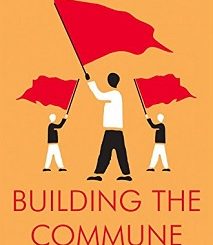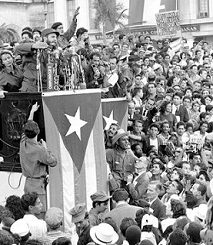
Fidel Castro: A Life— and Death— In Context
Source: NACLA Report on the Americas
Fidel Castro represented the authenticity of Cuban historical aspirations to sovereignty and self-determination.
Among the many tens of thousands of well-wishers to congratulate the newly re-elected President Franklin Roosevelt in November 1940 was a 12-year-old boy writing in halting English. “I like to hear the radio,” the youngster wrote, “and I am very happy, because I hear in it that you will be President for a new period.” The letter was sent from the Colegio de Dolores, the Jesuit boarding school in Santiago de Cuba. The writer was Fidel Castro Ruz, who also added a request to his congratulations. “If you like,” he asked President Roosevelt, “[to] give me a ten dollars bill green american because . . . never I have not seen a ten dollars bill american and I would like to have one of them.”




